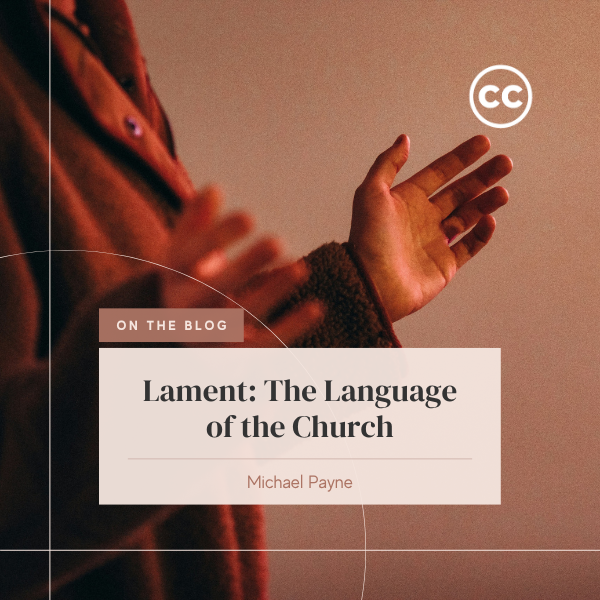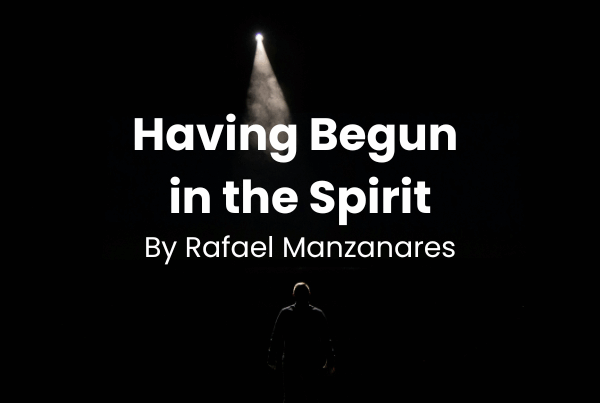
One of the unique and fascinating aspects of Jewish hymnody recorded for us in the Psalms of lament are the communal laments. Most of the Psalms of lament are individual and we treat them accordingly as personal prayers and devotions. But recorded for us are communal laments that were sung by the Jewish community as public acts of worship. The congregation would sing in unison the words of Psalm 44 – “But you (speaking of God) have rejected us and disgraced us and have not gone out with our armies.”[1] They would have sung together – “O God, you have rejected us, broken our defenses; you have been angry; oh, restore us.”[2] “Will you be angry with us forever? Will you prolong your anger to all generations?”[3] You would be hard-pressed to find these words sung, or anything close to it in our modern, western evangelical churches.
Many years ago, while serving as a music director, I was questioned on the use of a popular song of the time – “Create in Me a Clean Heart,” written by the late Keith Green. The conflict was with the second stanza which cries out: “Cast me not away from Thy presence, oh Lord, take not Thy Holy Spirit from me.” The reader will recognize these lyrics as the words of David from Psalm 51:11. The issue, as presented to me, was that, as new covenant Christians, this was no longer a reality for us. In Jesus our sin is forgiven, we are clothed in the righteousness of Christ. We have been sealed by the Holy Spirit. We no longer have to fear being cast from the presence of God and having the Holy Spirit taken from us. We walk in victory! I think this perspective might be a microcosm of why our modern churches do not see the importance of lament as the language of the church. Many feel that the church has graduated from lament to “break-through” and that there is no longer place for doubt, confusion, anger, and frustration in our communal liturgies. R.W.L. Moberly writes: “The predominance of laments at the very heart of Israel’s prayers means that the problems that give rise to lament are not something marginal or unusual but rather are central to the life of faith … Moreover they show that the experience of anguish and puzzlement in the life of faith is not a sign of deficient faith, something to be outgrown or put behind one, but rather intrinsic to the very nature of faith.”[4]
As rates of depression continue to rise, not only in the United States as a whole, but in the church, studies show that there is not enough evidence to prove that going to church will decrease the likelihood of depression.[5] This is a disheartening observation considering the process of lament given to us by God to deal with some of the issues that lead to depression and the communal nature of his church to act as a safe space and a resource of his power. Has the church lost its voice of lament, the ability to identify with, suffer in solidarity with, as Jesus did for us? If we are to be identified with Christ, should we not also be identified with sorrow and acquainted with grief? Michael Card remarks that our failure to lament can cut us off from each other – “If you and I are to know one another in a deep way, we must not only share our hurts, anger, and disappointments with each other, we must also lament them together before the God who hears and is moved by our tears.”[6] Jesus says, “Come to me, all who labor and are heavy laden, and I will give you rest.”[7] Our modern liturgies would project the idea that such heaviness is not welcome in our gatherings today.[8] How can we even learn to speak to the poor and suffering in our communities as the church of Christ if we do not know their language, the language of lament? Michael Jinkins writes: “Indeed, the predominance of lamentation is one of the most striking features of the Psalter. The psalmist clearly believes that a temple is where people go to weep”[9] Are our churches arenas where people can come to weep, or must they put on their ‘church face’ and sing triumphal songs, listen to a positive and encouraging message, while screaming inside – “God where are you? Are you listening?” Do we provide a place for these questions to be wrestled with, within our liturgy and community?
Some might argue, and modern contemporary liturgies reflect this, that we need just to walk in the victory of our salvation, and all will be well. We need to avoid negativity, complaining, and strife of all kinds because Jesus has nailed that all to the cross. Our time in community worship should be uplifting and edifying to one another and to God. On the surface, this seems to be a noble goal, but it is a surface argument based on a surface understanding of scripture. Walter Brueggemann makes this observation: “It is a curious fact that the church has, by and large, continued to sing songs of orientation in a world increasingly experienced as disoriented. That may be laudatory … It is my judgement that this action of the church is less evangelical defiance guided by faith, and much more a frightened, numb denial and deception that does not want to acknowledge or experience the disorientation of life … At least it is clear that a church that goes on singing “happy songs” in the face of raw reality is doing something very different from what the Bible itself does.”[10]
The catchy refrain – “Don’t worry be happy” sung by Bobby McFerrin has been adopted by the church and the result is a church that mirrors the secular with the same unfortunate results.
In order for the church to walk in the divine calling and power given by God, it must regain its voice of lament. It is only in mourning with those who mourn and weeping with those who weep that we can start to take on the image of Christ and walk as he walked, see people as he sees them. Lament needs to be a part of our prayers, our songs our scripture reading, outside of traditional Easter offerings, joining with Israel in communal lament. We need to learn to cry aloud with each other in solidarity for the collective sin in our nation, the injustice, for God to act and restore. But also need to give place to lament one with another. There is no victory in the battle unless there was pain in the fight. We have the victory because Jesus suffered the pain. He calls us to take up our cross daily and follow him, calling us into the fight. For the Christian, the new covenant is indeed a covenant of victory, but it is also a life of suffering until we meet our savior face to face on that final day. Jesus spoke the ultimate lament on the cross, but lament will only cease when he returns for his church, where “he will wipe away every tear from their eyes, and death shall be no more, neither shall there be mourning, nor crying, nor pain anymore, for the former things have passed away.”[11] Until that day, the church is the voice of lament, wrestling with the reality of this world in light of the reality of heaven, “resting with the paradox of pain and the promise of God’s goodness.”[12]
Recently, as part of our on-going ministry in Ukraine, we have been organizing worship/lament gatherings for Christians in Ukraine and the diaspora in greater Europe. We have encouraged an atmosphere of lament and have welcomed non-Christians into this process. These have been intense times of crying out to God, asking why he would let this war happen, why he would let untold horrors and destruction come upon his people. We have provided opportunities for pastors to lament in this same way, to wrestle with God, to ask hard questions, to express troubled emotions. We are not attempting to bring answers into this situation, but in solidarity, sit with our brothers and sisters and weep, calling on the name of God. Some question the validity of such an exercise, but you would be hard-pressed to find a Ukrainian Christian whose faith has not grown during these desperate times and whose trust in God has not strengthened. It is humbling to witness, but even more so to witness the effect it has on those who do not know God. The opportunities for gospel ministry are immense, the response ever growing.
The suffering of a broken world drives us to our knees in the presence of a holy God, and through the process of lament, we bridge the gap between the pain and the promise, growing ever deeper in our love for him. Through this process God teaches us that it is not the answers to our questions we need, but his presence.
References
[1] Psalm 44:9
[2] Psalm 60:1
[3] Psalm 85:5
[4] Bruce K. Waltke, James M. Houston, Erika Moore, The Psalms as Christian Lament: A Historical Commentary, (Grand Rapids, William B. Eerdmans Publishing Company, 2014), 1.
[5] Len Lantz, “Stigma and 7 Million American Christians with Depression,” The Psychiatry Resource, January 23, 2021, https://psychiatryresource.com/articles/stigma-and-7-million-depressed-christians.
[6] Michael Card, A Sacred Sorrow: Reaching Out to God in the Lost Language of Lament, (Colorado Springs, NavPress, 2005), 29.
[7] Matthew 11:28
[8] Card, 51.
[9] Michael Jinkins, In the House of the Lord: Inhabiting the Psalms of Lament, (Collegeville, The Liturgical Press, 1998), 33.
[10] Walter Brueggemann, The Message of the Psalms: A Theological Commentary, (Minneapolis, Augsburg Publishing House, 1984), 51-52.
[11] Revelation 21:4
[12] Mark Vroegop, Dark Clouds, Deep Mercy: Discovering the Grace of Lament, (Wheaton, Crossway, 2019), 26.







